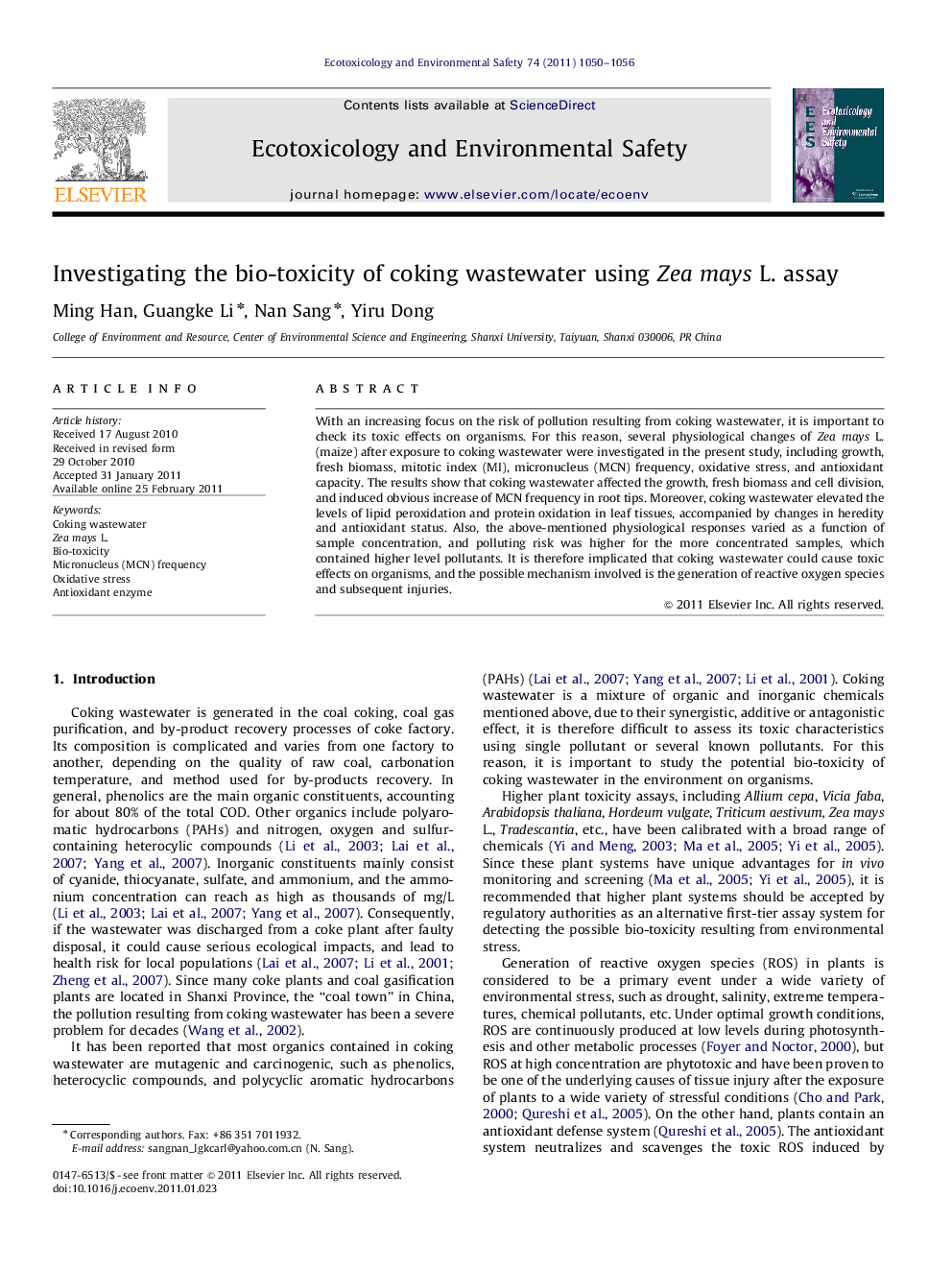| Article ID | Journal | Published Year | Pages | File Type |
|---|---|---|---|---|
| 4421495 | Ecotoxicology and Environmental Safety | 2011 | 7 Pages |
With an increasing focus on the risk of pollution resulting from coking wastewater, it is important to check its toxic effects on organisms. For this reason, several physiological changes of Zea mays L. (maize) after exposure to coking wastewater were investigated in the present study, including growth, fresh biomass, mitotic index (MI), micronucleus (MCN) frequency, oxidative stress, and antioxidant capacity. The results show that coking wastewater affected the growth, fresh biomass and cell division, and induced obvious increase of MCN frequency in root tips. Moreover, coking wastewater elevated the levels of lipid peroxidation and protein oxidation in leaf tissues, accompanied by changes in heredity and antioxidant status. Also, the above-mentioned physiological responses varied as a function of sample concentration, and polluting risk was higher for the more concentrated samples, which contained higher level pollutants. It is therefore implicated that coking wastewater could cause toxic effects on organisms, and the possible mechanism involved is the generation of reactive oxygen species and subsequent injuries.
